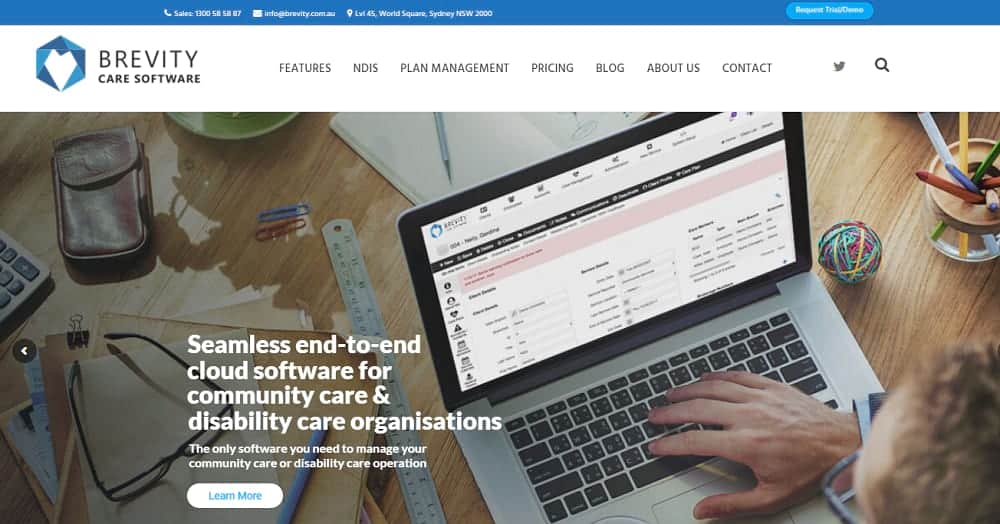
“A goal without a plan is just a wish.” So said Antoine de Saint-Exupéry. And we couldn’t agree more. When it comes to running your business, a business plan helps keep you on track to reach your goals. And the same is certainly true for NDIS participants themselves. Without a great plan, it’s difficult to measure whether their individual needs are being met. Or what progress is being made toward their stated goals.
This is where a disability care plan comes in. In this article, we’ll look at some great disability care plan examples as well as what goes into making them. That way, you can be better informed about the importance of these plans in helping people with a disability live more independently. And, in turn, provide better supports and services as an NDIS provider to help your clients succeed and your business thrive.
Disability care plans explained
Did you know that disability care plans are legal documents? It’s essential NDIS providers know how they work so they can not only put them into action but also review them correctly.
Every individual plan needs to outline the Who, What, When, and How disability supports and services will be delivered. For example:
Who –
- Personal information about the NDIS participant (i.e. name, age, gender)
- Their medical history
- Daily routines
- Personal interests and activities
- Social support
- Environmental risks
- Nutritional requirements
- Communication abilities and preferences
- The key workers who will take responsibility for implementing the planned strategies.
What –
- The individual needs and goals of the person with a disability
When –
- Timeframe within which the strategy is to be implemented
How –
- The planned strategies/supports/services that will be implemented to help the NDIS participant meet their goals
- Disability care plans also need to record how updates and changes have been made as well as outline the process for review.
As can be seen, disability care plans are important documents. They work to create a set of expectations between the NDIS participant themselves and their service providers. Disability care plans inform all persons that work with the participant what their needs are. They act as a critical source of information that helps ensure a participant is offered the best quality of care based on their unique needs.
The planning process
The first step in creating a successful plan is to gain input from the participant themselves about what their needs and goals are. Beyond this, family members and support workers should also have some input into creating the plan. Creating an individual disability care plan is never a standalone occurrence. Rather, it should be a continual process whereby the plan is regularly reviewed, updated, and changed based on the changing needs and goals of the person living with a disability. Furthermore, annual care plan reviews are required by law. This is an important part of the overall planning process as it allows levels of progress toward stated goals to be measured. With all this in mind, let’s now look at some great disability care plan examples.
Disability care plan examples
Obviously, the individual care plan example for a young person living with Autism versus an older person living with dementia is going to be very different. That’s why disability care plans must be created individually to suit the unique needs of NDIS participants. It’s not possible to simply find and replicate a disability care plan example replicate. As a guide, however, a good individual care plan example can be found here.
Final Thoughts
Without a plan, it’s difficult to get where you want to in life. And it’s also difficult to see how well you are progressing towards reaching your goals. For these two reasons, having a great disability care plan is essential. It sets out the needs and goals for the person living with a disability and informs providers how they can go about helping them to achieve those goals. It should be your goal as an NDIS provider to know what constitutes great disability care plan examples.

Need Help with Managing all Aspects of Service Delivery and other aspects of running an NDIS organisation? Let Us Help
NDIS providers are tasked with upholding a great quality of care for their clients. And Brevity Care is there each step of the way. Brevity Care software was built from the ground up to be an NDIS-specific tool that empowers NDIS providers to streamline their business operations.
If you would like to know more about how a software like Brevity can help meet your unique needs as an NDIS provider, click on this link to begin your journey with Brevity.



